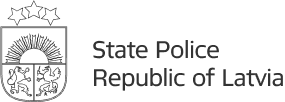Within the framework of the European Economic Area Financial Instrument for the period 2014-2021, Program "International Police Cooperation and Crime Prevention," project No. EEA/Norway Grants/TM/2022/7, titled "Strengthening of the capacity of forensic system and inspection of the site of the event" two practical training sessions of professional training — “disaster victim Identification” (DVI) were held between 13 August and 6 September.
Representatives of Interpol shared theoretical and practical knowledge and their experience of identifying disaster victims in various countries around the world. This includes the experience gained in the identification of the victims of flight MH17, the 2021 floods of the German Reinis River, the Turkish Airlines disaster in Amsterdam, etc., shot down in Ukraine.
Our forensic specialists, on the other hand, gained the opportunity to test all theoretically acquired knowledge in practice – at the scene of the disaster. The issues and uncertainties raised were an opportunity to discuss with the teaching team and find a solution for each substandard situation.
To facilitate victim identification, the scene of the crash was divided into sectors. There can sometimes be many such sectors, as the area under search in “open disasters” such as floods often covers many hundreds of square kilometres in earthquakes. “Closed disasters”, such as the identification of victims of air disasters, may also be subject to unforeseen circumstances. People on the ground could die as the plane crashes into a tractor or car travelling on the field. Among the burning wreckage, it is not always immediately possible to understand the whole picture and it is preferable to leave an open mind to different probabilities.
Each sector was examined and documented by a separate group of specialists. Each Member of the group had a specific task. Body parts found during the disaster site inspection were documented in specialist disaster victim identification booklets before being taken to the morgue. For each body or part of it, its own separate booklet. The groups had the opportunity to apply different approaches to increasing the efficiency of their work and for each method, Interpol's representatives provided their own assessment indicating the benefits.
Correct and thorough filing is an extremely important factor in automated victim identification. As Interpol seeks to minimise the time needed to identify victims, new computerised systems are being created and used to process and analyse data from disaster scenes and morgues.
Disaster areas often have to deal with body parts scattered over large areas. It doesn't always work to find and identify a whole body and have to work with what's left after the disaster.
In major disasters, there can be very many victims. As a result, specialists have to work under psychologically difficult conditions and Interpol's trainers pointed to the importance of psychological support programmes and rehabilitation for the daily identification of disaster victims. And advised, regardless of the tense situation, to keep a cool mind and a healthy sense of humour to manage stress. It is important to point out that the entire process of activity in the sector in question is limited to the persons performing the activity. In order to ensure the quality of work performance and prevention of misunderstandings, as well as respecting respect for the relatives of the victims, regardless of the scale of the tragedy, the intervention of outsiders (politicians, journalists, etc.) is not permissible.
A makeshift temporary morgue carried out documenting the identifying features of the makeshift disaster victims, as well as obtaining fingerprints and DNA.
Sometimes the identification of victims can also be facilitated by personal belongings and jewellery found near the victim. A detailed description of the missing person's personal belongings is therefore important in the comparison process. Identification of all victims can take as long as several months, so sometimes even an initially inconspicuous detail can be crucial in the end.
In the event of uncertainties in crisis situations, proper coordination and appropriate redirection of resources are essential. It is important to remember that, despite the fact that specialist groups are composed of representatives from different sectors and even different countries, the entire team of specialists should act as a single mechanism.
The final conclusion to which Interpol's representatives referred was as follows: 'We are working so that families can recover their loved ones. And do so with the utmost respect for those who died'.



